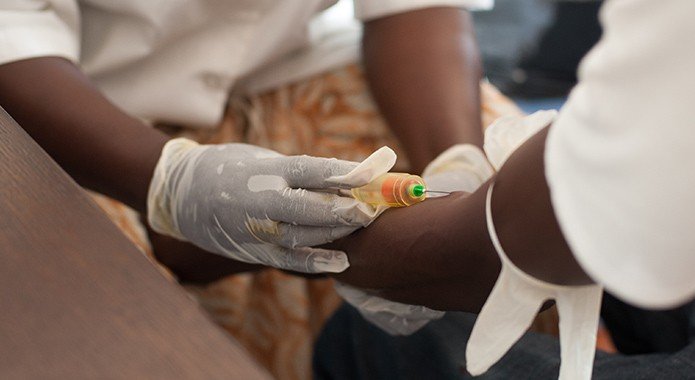Care & Treatment
At MARPI Clinic, we are dedicated to providing comprehensive and compassionate care & treatment to Most At Risk populations with HIV, those seeking sexual and reproductive health services. Our multidisciplinary team of healthcare professionals ensures that each patient receives personalized and holistic treatment, tailored to their unique needs and circumstances.

HIV Testing and Diagnosis:
Early detection of HIV (first 95) is crucial for effective management and treatment. At MARPI Clinic, we offer confidential rapid HIV testing services & HIV self testing. Over 15,000 Most At Risk populations are tested on the quarterly basis. Our counsellors provide pre- and post-test counseling to ensure clients are well-informed and supported throughout the testing process.
Antiretroviral Therapy (ART)
For Most At Risk populations diagnosed with HIV, antiretroviral therapy is a cornerstone of treatment (second 95). Our clinic provides access to the latest ART regimens (first, second & third line), which are essential for suppressing the virus, improving immune function, and reducing the risk of HIV transmission. Our medical team closely monitors patients to manage any side effects and ensure adherence to treatment. In addition, the clinic has enrolled over 2,100 in care and 85% of these are Most At Risk populations.

Regular Monitoring and Support
Ongoing monitoring is vital for individuals on ART. At MARPI Clinic, we conduct regular check-ups, including viral load testing (third 95: -VL suppression) and CD4 count assessments, to track the effectiveness of the treatment and make any necessary adjustments. Our healthcare providers offer continuous support, including counseling and education, to help patients maintain their health and well-being. Over 96% of our enrolled patient on ART are virally suppressed.
Continuity on Treatment. (CoT).
MARPI Clinic, Continuity on Treatment (CoT) is an integral part of our ART program, designed to ensure patient retention and minimize treatment interruptions. CoT involves monitoring patients on ART, identifying those lost to follow-up, and differentiating between those receiving multi-month prescriptions (over 3 months & 90% of our patients receive MMD) and those with shorter-term supplies (less than 3 months). We also track appointment adherence, assessing how many patients keep their scheduled appointments and how many miss them, and implement strategies to encourage consistent attendance.
Additionally, we conduct root cause analyses for patients returning to care after a period of absence, understanding the reasons behind treatment interruptions and implementing solutions to prevent recurrence. We categorize lost patients to understand the underlying reasons, such as death, self-transfer, refusal or cessation of treatment, or unaccounted losses. This comprehensive approach enables us to develop targeted interventions aimed at retaining more patients in continuous care, ultimately improving health outcomes for our community.